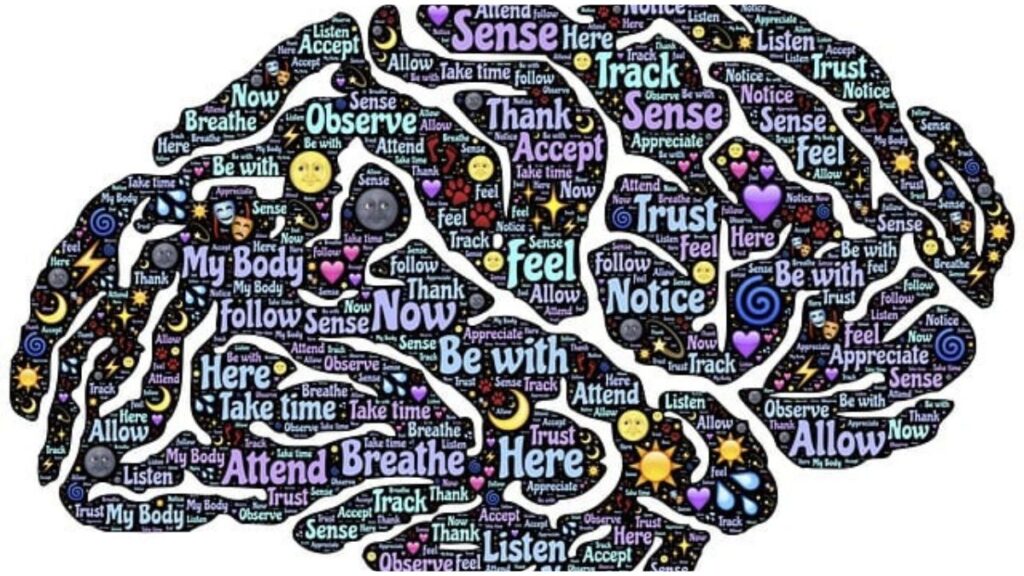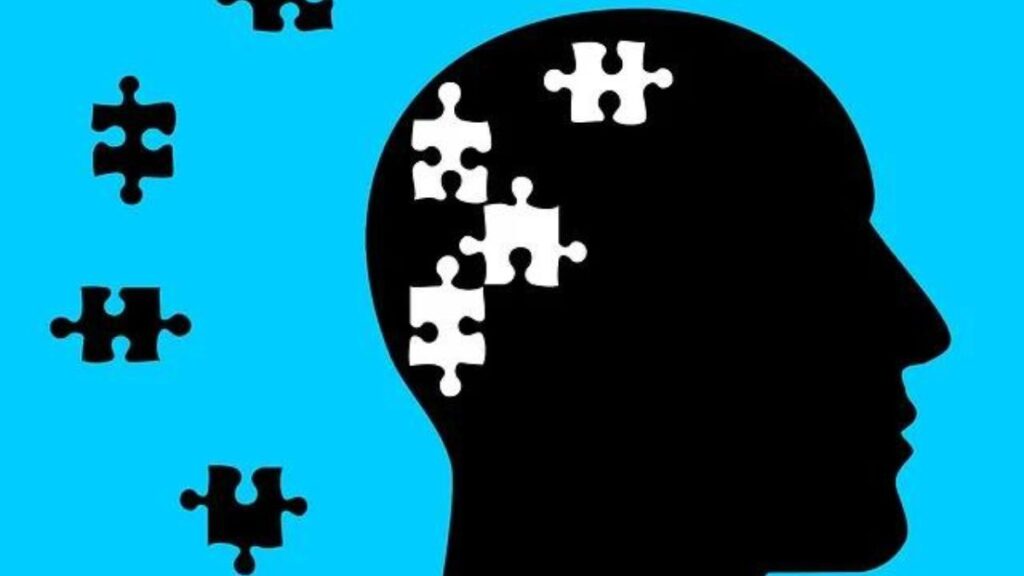Introduction:
“Nutrition’s Impact on Brain Health & Function”

In today’s fast-paced world, where mental agility and sharpness are valued assets, understanding the profound impact of nutrition on brain health and function is paramount. Far beyond simply satisfying hunger, the foods we consume play a pivotal role in shaping cognitive abilities, mood regulation, and overall nervous system functioning. Let’s delve into the intricate relationship between nutrition and the brain, uncovering key insights that can empower you to make informed dietary choices for enhanced mental well-being.
“How does nutrition Impact on Brain Health & Function?”
Nutrition plays a significant role in memory and cognition. Here are some key ways:
- Brain Development: Proper nutrition, especially during critical periods like infancy and childhood, is crucial for optimal brain development. Nutrients like omega-3 fatty acids, vitamins (especially B vitamins), and minerals (such as iron, zinc, and iodine) are essential for the growth and development of the brain.
- Neurotransmitter Production: Certain nutrients are precursors to neurotransmitters, the chemical messengers in the brain. For example, amino acids from protein-rich foods are necessary for the production of neurotransmitters like dopamine, serotonin, and acetylcholine, which play key roles in memory, mood, and cognition.
- Energy Metabolism: The brain is highly metabolically active and requires a constant supply of energy to function optimally. Glucose, obtained from carbohydrates, is the primary source of energy for the brain. Balanced blood sugar levels are essential for maintaining cognitive function and memory.
- Antioxidants: Antioxidants, found in fruits, vegetables, and other plant-based foods, help protect the brain from oxidative stress and inflammation, which can contribute to cognitive decline and memory impairment over time.
- Gut-Brain Axis: Emerging research suggests a strong connection between gut health and brain function. A healthy gut microbiome, supported by a diet rich in fiber and probiotics, may positively influence cognitive function and memory through various pathways, including inflammation regulation and neurotransmitter production.
- Long-Term Effects: Chronic deficiencies or imbalances in nutrients can lead to long-term cognitive deficits. For example, vitamin B12 deficiency is associated with cognitive impairment and memory loss, while excessive consumption of saturated fats and refined sugars has been linked to cognitive decline and an increased risk of dementia.
“How does omega-3 fatty acid intake impact brain function?”
Omega-3 fatty acids, particularly EPA (eicosapentaenoic acid) and DHA (docosahexaenoic acid), are crucial components of brain cell membranes and play several important roles in brain function:

- Brain Development: DHA, in particular, is essential for the development of the brain and nervous system, especially during fetal development and early childhood. Adequate intake of omega-3 fatty acids during pregnancy and early childhood is associated with better cognitive function and a reduced risk of developmental disorders.
- Neurotransmission: Omega-3 fatty acids help regulate neurotransmitter function in the brain, including dopamine and serotonin, which are involved in mood regulation, attention, and memory. By promoting optimal neurotransmitter function, omega-3s can support overall cognitive function.
- Anti-inflammatory Effects: Omega-3 fatty acids have anti-inflammatory properties, helping to reduce inflammation in the brain. Chronic inflammation is associated with cognitive decline and neurodegenerative diseases such as Alzheimer’s and Parkinson’s. By reducing inflammation, omega-3s may help protect against these conditions and support overall brain health.
- Neuroprotection: DHA, in particular, has been shown to have neuroprotective effects, helping to protect brain cells from damage and promoting their survival. This neuroprotective effect may help preserve cognitive function and reduce the risk of age-related cognitive decline.
- Improved Brain Structure and Function: Studies have shown that higher intake of omega-3 fatty acids is associated with increased gray matter volume in areas of the brain involved in memory and cognitive function. Additionally, omega-3 supplementation has been found to improve cognitive performance, including memory, attention, and processing speed, in both children and adults.
- Mood Regulation: Omega-3 fatty acids have been studied for their potential role in mood disorders such as depression and anxiety. Some research suggests that omega-3 supplementation may help improve mood and reduce symptoms of depression and anxiety, possibly by modulating neurotransmitter function and reducing inflammation in the brain.
“Is there a link between gut health and brain health?
Yes, there is a strong and bidirectional link between gut health and brain health, known as the gut-brain axis. This connection involves complex communication pathways between the gut and the brain, involving the nervous system, immune system, and endocrine system. Several mechanisms contribute to this relationship:
- Microbiome Influence: The gut microbiome, consisting of trillions of bacteria and other microorganisms, plays a crucial role in gut health. Emerging research suggests that the gut microbiome also influences brain health and function. The microbiome produces neurotransmitters, such as serotonin and dopamine, which can impact mood and cognition. It also produces metabolites and short-chain fatty acids that can influence brain function and protect against neuroinflammation.
- Immune System Modulation: The gut is a major site of interaction between the immune system and the external environment. Imbalances in gut bacteria (dysbiosis) can lead to increased intestinal permeability (leaky gut), allowing harmful substances to enter the bloodstream and potentially trigger an immune response. Chronic inflammation resulting from dysbiosis has been linked to various neurological conditions, including depression, anxiety, and neurodegenerative diseases.
- Neuroendocrine Signaling: The gut produces hormones and neuropeptides that can communicate with the brain via the vagus nerve and other pathways. For example, the gut hormone ghrelin, which regulates hunger and satiety, can also influence mood and anxiety. Similarly, stress signals from the brain can affect gut function and microbial composition, leading to gastrointestinal symptoms.
- Brain-Gut Axis: Conversely, the brain can influence gut function and microbial composition through stress responses, emotions, and neurotransmitter signaling. Chronic stress, for example, can disrupt gut barrier function, alter microbial composition, and contribute to gastrointestinal disorders such as irritable bowel syndrome (IBS).
- Impact on Neurological Disorders: Imbalances in the gut microbiome and disruptions in the gut-brain axis have been implicated in the pathogenesis of various neurological disorders, including autism spectrum disorder, multiple sclerosis, Parkinson’s disease, and Alzheimer’s disease. Strategies aimed at modulating the gut microbiome, such as probiotics, prebiotics, and dietary changes, are being investigated as potential interventions for these conditions.
Are there specific foods that boost mental clarity and focus?”
Yes, certain foods can help boost mental clarity and focus by providing nutrients that support brain function and energy production. Here are some examples:

- Fatty Fish: Fatty fish like salmon, trout, and sardines are rich in omega-3 fatty acids, particularly EPA and DHA, which are crucial for brain health. Omega-3s have been linked to improved cognitive function, memory, and focus.
- Berries: Berries, such as blueberries, strawberries, and blackberries, are packed with antioxidants that help protect the brain from oxidative stress and inflammation. Studies suggest that regular consumption of berries may improve cognitive function and delay age-related decline in brain function.
- Nuts and Seeds: Nuts and seeds, such as walnuts, almonds, flaxseeds, and chia seeds, are rich in omega-3 fatty acids, antioxidants, and vitamin E, which support brain health. They also provide protein and healthy fats, which help keep you feeling satisfied and focused.
- Dark Leafy Greens: Dark leafy greens like spinach, kale, and Swiss chard are rich in vitamins and minerals, including folate, vitamin K, and iron, which are important for cognitive function and energy production. They also contain antioxidants that help protect the brain from damage.
- Whole Grains: Whole grains like oats, quinoa, and brown rice provide a steady supply of energy to the brain. They are rich in complex carbohydrates, fiber, and B vitamins, which support brain function and help maintain focus and concentration.
- Eggs: Eggs are a rich source of choline, a nutrient that is important for brain health and neurotransmitter function. Choline is a precursor to acetylcholine, a neurotransmitter involved in memory and focus.
- Avocados: Avocados are rich in healthy fats, particularly monounsaturated fats, which support brain health and cognitive function. They also contain vitamins E and C, antioxidants that help protect the brain from oxidative stress.
- Turmeric: Turmeric contains a compound called curcumin, which has anti-inflammatory and antioxidant properties. Studies suggest that curcumin may help improve memory, mood, and cognitive function.
- Green Tea: Green tea contains caffeine and L-theanine, both of which have been shown to improve cognitive function and promote alertness and focus. L-theanine also has a calming effect, which can help reduce stress and anxiety.
- Dark Chocolate: Dark chocolate contains flavonoids, caffeine, and antioxidants that can improve blood flow to the brain and enhance cognitive function. It also contains small amounts of caffeine, which can help increase alertness and focus.
Incorporating these foods into your diet as part of a balanced and varied eating plan can help support mental clarity, focus, and overall brain health.
Conclusion:
The intricate interplay between nutrition and brain health underscores the profound impact of dietary choices on cognitive function, mood regulation, and overall well-being. By prioritizing nutrient-rich foods, balancing blood sugar levels, and nurturing gut health, individuals can optimize brain performance and cultivate a resilient mind-body connection that enhances both mental and physical vitality. Embrace the power of nutrition as a cornerstone of holistic well-being, empowering yourself to thrive in an increasingly demanding world.
FAQs
- How does nutrition impact mood and mental well-being? Certain nutrients, such as tryptophan, B vitamins, and magnesium, play a role in neurotransmitter synthesis and mood regulation. A balanced diet that includes these nutrients can promote emotional stability, stress resilience, and overall mental well-being.
- What is the gut-brain connection, and how does nutrition influence it? The gut-brain connection refers to the bidirectional communication between the gut microbiota and the brain. Nutrition influences gut health, which in turn impacts cognitive function, mood, and stress response. Consuming fiber-rich foods and probiotics supports a healthy gut microbiome, promoting mental well-being.
- How can nutrition help prevent cognitive decline? A diet rich in nutrients like omega-3 fatty acids, antioxidants, and vitamins supports brain health and may help prevent cognitive decline associated with aging. By nourishing the brain with nutrient-dense foods and promoting overall health through diet, individuals can reduce the risk of age-related cognitive impairment.
References
- Gomez-Pinilla, F. (2008). Brain foods: the effects of nutrients on brain function. Nature Reviews Neuroscience, 9(7), 568–578. doi:10.1038/nrn2421
- Jacka, F. N., et al. (2017). Nutritional psychiatry: Where to next? EBioMedicine, 17, 24–29. doi:10.1016/j.ebiom.2017.02.020
- Mörkl, S., et al. (2018). Nutritional psychiatry: the present state of the evidence. Proceedings of the Nutrition Society, 77(4), 412–426. doi:10.1017/S0029665118002267
- Parletta, N., et al. (2016). Nutritional modulation of cognitive function and mental health. Journal of Nutritional Biochemistry, 36, 1–17. doi:10.1016/j.jnutbio.2015.12.002
- Rees, A. M., & Austin, M. P. (2005). Nutrition and mental health. Clinical Medicine, 5(4), 377–380. doi:10.7861/clinmedicine.5-4-377








